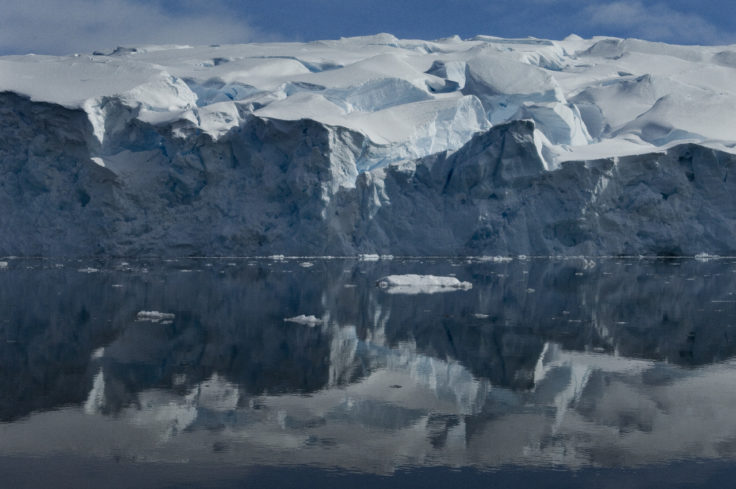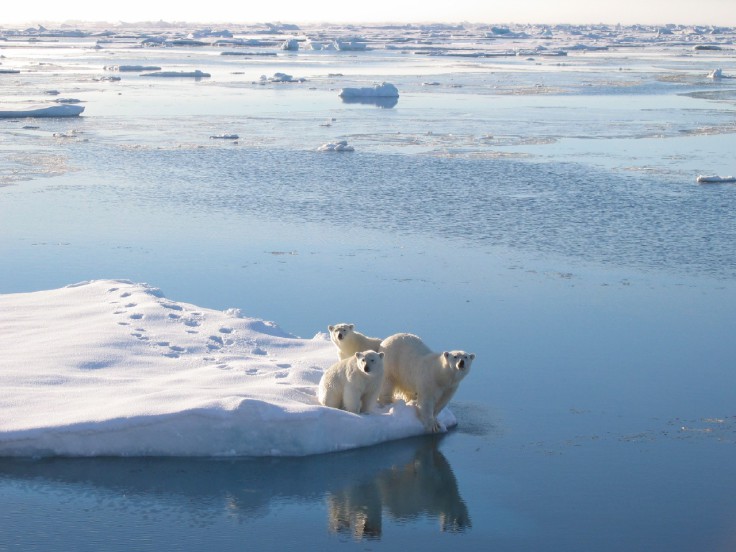Improving climate projections in the Polar Regions
The Polar Regions play a crucial role in balancing global climate – with the poles heating up much faster than the rest of the world. Yet, climate projections for these regions still have significant uncertainties. This is hampering efforts to curb climate change and deal with the effects we already see at play not only within the Antarctica and the Arctic, but also in Europe and the rest of the world.
British Antarctic Survey researchers are part of PolarRES – a new research project funded by the European Union’s Horizon 2020 Programme to explore making climate projections in the polar regions more reliable. Over the next four years, teams across Europe will develop new insights on polar processes and adopt a so-called ‘storylines approach’. For instance, the research will explore how polar climate change will affect Boreal wildfires and permafrost thaw. If ancient permafrost thaws, more greenhouse gases will be released into the atmosphere, further contributing to a hotter planet.

“Both the Arctic and Antarctica are undergoing dramatic changes. There is a pressing need to understand the scope of these changes and the climate processes that underpin them. PolarRES will enable us to achieve this and provide more confident information about the future climate of the Polar Regions. In doing so, it will empower communities in these regions, and society at large, to respond to future changes,” says Priscilla Mooney, climate scientist at NORCE Norwegian Research Centre and the Bjerknes Center for Climate Research, who is leading the international research team.
She continues:
“International cooperation is key to assessing climate impacts in the polar regions. It requires a broad range of expertise and infrastructure, which is why it is important to bring together leading experts from all around the world to tackle this problem,”
The project unites researchers from the EU, China, Japan, Russia, Norway, UK, Ukraine, and the US, and will contribute important knowledge to the EU Strategy on Climate Action.
The project will not only study the climate in the polar regions, but everything which feeds into it globally. It will take advantage of cutting-edge numerical models and advanced satellite products from the European Space Agency’s Earth Observation Programme. PolarRES will also deliver new insights into how physical and chemical processes crucial for atmosphere-ocean-ice interactions can shape the global climate system.
Lead scientist at British Antarctic Survey, Dr Andrew Orr explains:
“Despite a huge spotlight on climate change at the recent COP26 climate talks in Glasgow, there is still uncertainty about what future change will look like for the world. PolarRES will provide enhanced understanding on how future climate change will influence the Arctic and Antarctic, which are already the most rapidly changing regions on Earth. Such understanding is necessary for people, policy and businesses well beyond the Polar Regions to respond to climate change.”

About PolarRES: The Project Receives 8 million EUR funding from the European Union’s Horizon 2020 Research Program for the period 01.09.2021 to 31.08.2025 under the Grant Agreement 101003590. The grant is part of the EU’s policy on supporting the transformation to a low-carbon, resilient future and the climate action that supports the Paris Agreement.
PolarRES is coordinated by the NORCE Norwegian Research Centre (Norway) with the following partner institutions (in alphabetical order): Alfred-Wegener-Institut Helmholtz-Zentrum Fur Polar- Und Meeresforschung (DE), Arctik SRL (BE), British Antarctic Survey (UK), Danmarks Meteorologiske Institut (DK), Helsingin Yliopisto (FI), Ilmatieteen Laitos (FI), Instytut Problem Matematychnykh Mashyn I System Natsional Noi Akademii Nauk Ukrainy (UA), Lunds Universitet (SE), Meteorologisk Institutt (NO), National Antarctic Scientific Center (UA), Scientific foundation Nansen International Environmental and Remote Sensing Centre (RU), Shanghai Jiao Tong University (CH), Turun Yliopisto (FI), Université de Liege (BE), University of Leeds (UK), Universiteit Utrecht (NL). More here: https://polarres.eu/